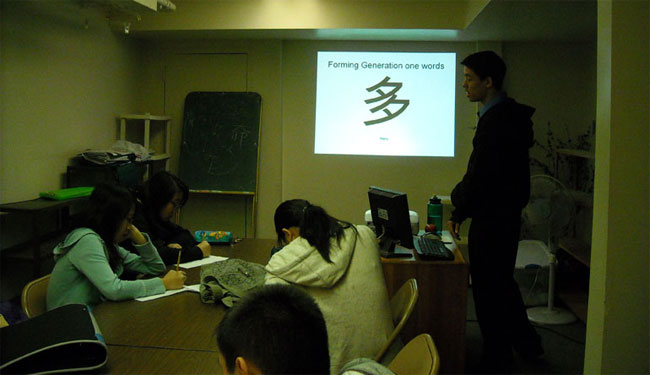Author: admin | Date: October 6, 2009
Linguistics Conference, Educators’ Consciousness and the burden of Karma
2009 Linguistics Conference has two main themes:
- Can a second language be learned with much less effort than a native learns it as his mother tongue?
- How can the written part of a language be learned as a second language with much less effort than a native who has the help and support of knowing the verbal part of that language while the student of the second language is without such an advantage?
- How can the verbal part of a language be learned as a second language with much less effort than a native learns it as his mother tongue?
- If a discipline can be learned in days (instead of years) with a newly discovered procedure, can educators’ conscious allow them to waste students’ lives away by teaching the old way, especially if the public is unaware of the issue?
We are the citizens of America, citizens of the world. Yet, most importantly, we are the citizens of humanity, that is, we are carrying the burden of human advancement. In fact, any human advancement is the result of, at least, four karma dynamics.
- Those who are not in the know carry the karma of ignorance.
- Those who spread the knowledge of human advancement carry the karma of messenger.
- Those who are in the know but are not spreading the knowledge carry the karma of apathy.
- Those who are informed about the advancement but are choosing to ignore or to deny it are carrying the karma of dead-weight.
Obviously, any advancement for humanizing is fighting against a variety of dead-weight karmas. Thus, this 2009 Linguistics Conference not only is a forum to discuss linguistics but is a battle of karmas, to reduce the karma of ignorance, to awaken the karma of apathy and to identify the karma of dead-weight.
Tutoring kids on Chinese Etymology

A fourth grader taking a test on Chinese Etymology
